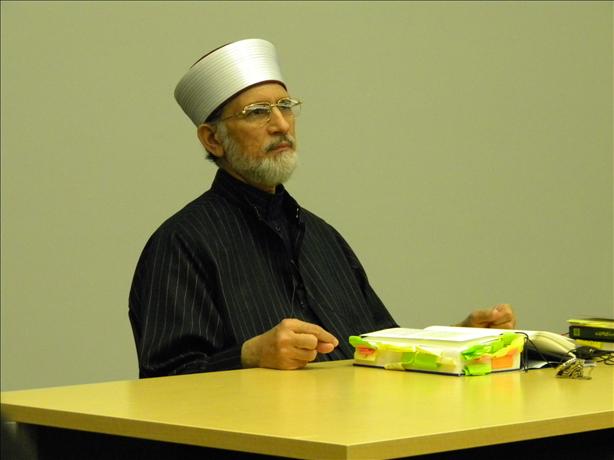 An international scholar has regretted the fuss created over Muslim women appearing in public without their faces covered, saying that there was nothing mandatory to this effect in the Holy Quran.
An international scholar has regretted the fuss created over Muslim women appearing in public without their faces covered, saying that there was nothing mandatory to this effect in the Holy Quran.
Pakistan born Dr Muhammad Ul Qadri, who is renowned for his moderate and realistic views of Islam, said that adaptability to local laws and customs was one of the most significant aspects of the religion.
“While Islam expects women to dress modestly including covering their hands while in public, there is no requirement that their faces should be veiled with burqa,” he told Indian Newslink during an interview in Auckland.
He was in New Zealand last fortnight at the invitation of the members of the Pakistani community and delivered a lecture organised by the Pakistan Students Association on ‘Peace, Humanity and Islam’ at the University of Auckland Business School on August 7, 2011.
“While I agree that women should appear in public in dignified dress, I cannot agree that they should have their faces veiled. There are requirements for women to show their faces while driving and while seeking public utility services. There should be no issue on this score,” he said.
Dr Qadri said he had heard of the occasional controversy that the issue had raised in New Zealand including a recent incident in which two Muslim women were not allowed to board a public bus unless they removed their veil.
“New issues arise as Muslims migrate to other countries. They should become a part of the society and abide by the laws of the land,” he said.
Dr Qadri agreed that the issue has had varied interpretations, with some scholars saying that women should be subject to the stricture regarding their appearance in public.
The Holy Quran had specified what was forbidden, permissible, condemnable, condonable and recommendable.
“We live in a globalised world in which Muslims are successful businesspersons, professionals and official in Government establishments. Just as they adapt to local laws and practices, they should also do so in relation to social customs and behaviour, without of course compromising Islamic values and principles. Taking off the veil is not un-Islamic,” he said.
Dr Qadri made international headlines in March 2010 when he issued a ‘Fatwa’ (Decree), stating that terrorist attacks were not only outlawed by Islam but also rendered perpetrators completely out of the fold of the faith.
“When the forbidden element of suicide is added, the severity is even greater,” he said, adding that ‘Fatwa’ did not call for violence.
Read related reports in our Eid Al Fitr Special in this issue.
Photo: Children await the arrival of Dr Muhammad Ul Qadri at Auckland International Airport on August 3, 2011 (Indian Newslink picture). Inset: Dr Qadri at his public lecture at the University of Auckland Business School on August 7, 2011 (Picture for Indian Newslink by Alamgir Afridi)






